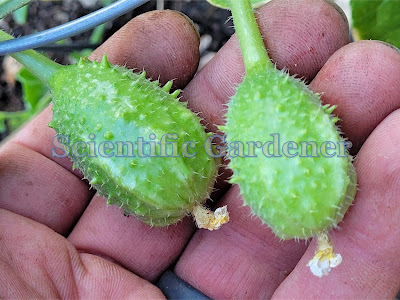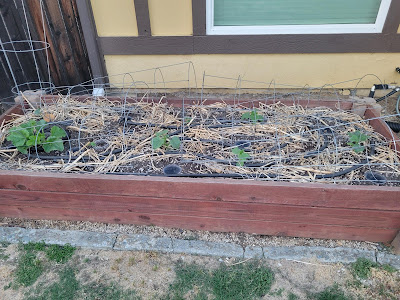The Liso Calcutta is a Cucumis anguria variety that originates from Africa. It is characterized by not just the regular thorny appearance of the Cucumis anguria, but by burly longitudinal ridges that straddle the sides of the fruit.
It took a while for me to find the Liso Calcutta. Most seed companies sell one of a multitude of Cucumis anguria under the name of “West Indian Gherkin”. They are called this because there were a number of Cucumis anguria that made their way to the Caribbean via the slave trade.
My experience with the
Liso Calcutta was that they grew fairly well. They produced good seed
easily, which can be hard for some of the C. anguria varieties. Some
other varieties don’t produce good seed until the plant has grown very
large, the fruits have substantially plumped up and the fruit has been
aged until it is nearly rotting.
For those looking for
something a little different, the Liso Calcutta is a very interesting
variety to grow. While they exhibit many of the same qualities as the
New Word gherkins (disease resistance and consistent production until
the first frost) I personally prefer them much more than the Melothria
scabra Sanditas or “Mexican Sour Gherkins” both in flavor and in
texture.














































































